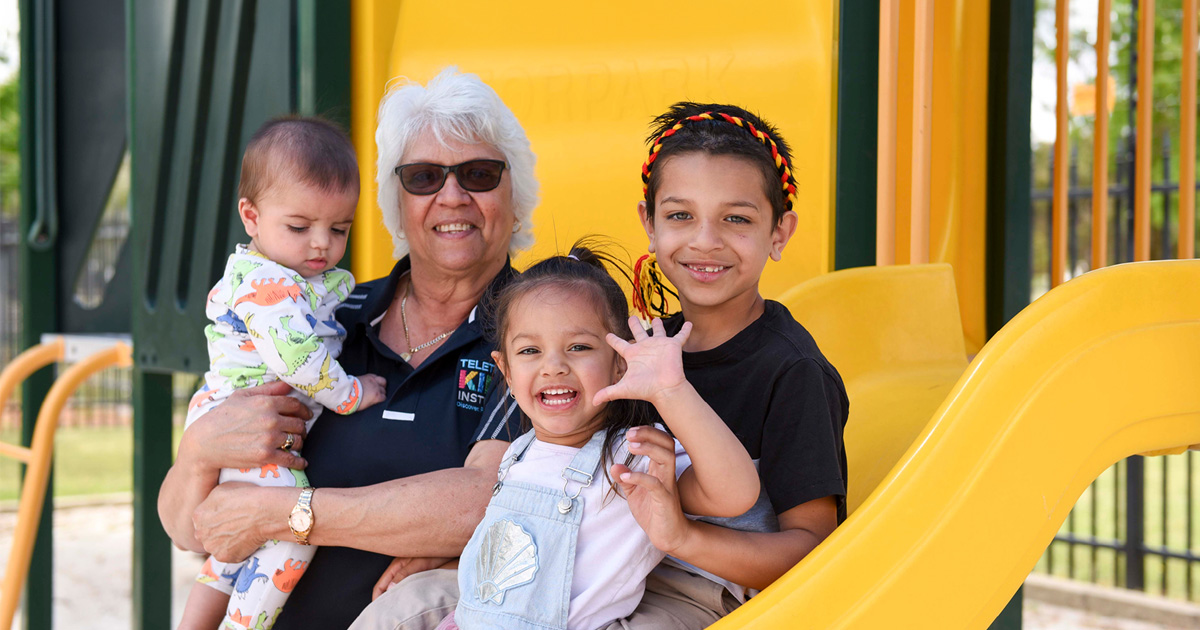Search
Showing results for "early lung health"
Research
among children with pneumonia using a causal Bayesian networkPneumonia remains a leading cause of hospitalization and death among young children worldwide, and the diagnostic challenge of differentiating bacterial from non-bacterial pneumonia is the main driver of antibiotic use for treating pneumonia in children. Causal Bayesian networks (BNs) serve as powerful tools for this problem as they provide clear maps of probabilistic relationships between variables and produce results in an explainable way by incorporating both domain expert knowledge and numerical data.

The The Kids Community stretches far and wide, and is full of inspiring people, doing inspiring things for child health research.
Research
Reversible Control by Vitamin D of Granulocytes and Bacteria in the Lungs of Mice: An Ovalbumin-Induced Model of Allergic Airway DiseaseVitamin D may be essential for restricting the development and severity of allergic diseases and asthma, but a direct causal link between vitamin D...

Professor Jonathan Carapetis has made eliminating rheumatic heart disease his life’s work.
On this Research Impact page, we list stories helping to show our exciting in-progress research currently "in the pipeline" towards translation. This is research which shows a real spark of potential to make a significant difference to children and families worldwide.

News & Events
Research to explore promising new RSV treatment supported by innovation seed fundingResearchers from the Wal-yan Respiratory Research Centre are collaborating with Virex Pharma to undertake vital research into a potential breakthrough treatment for RSV infections in young children, thanks to a $499,241 grant awarded by the WA Department of Health Innovation Seed Fund.
Research
Lack of effectiveness of 13-valent pneumococcal conjugate vaccination against pneumococcal carriage density in Papua New Guinean infantsPapua New Guinea (PNG) introduced the 13-valent pneumococcal conjugate vaccine (PCV13) in 2014, with administration at 1, 2, and 3 months of age. PCV13 has reduced or eliminated carriage of vaccine types in populations with low pneumococcal carriage prevalence, carriage density and serotype diversity.

A decade long partnership with Wesfarmers Ltd. and the Wesfarmers Centre of Vaccines and Infectious Diseases has led to world-class paediatric research and important collaborations fuelling the Centre’s trajectory towards easing the burden of infectious diseases.
Research
Determining the off-target effects of infant vaccines on respiratory infection outcomes in Western Australian childrenChristopher Hannah Lea-Ann Blyth Moore Kirkham MBBS (Hons) DCH FRACP FRCPA PhD OAM BSc (Hons) GradDipClinEpi PhD PhD Centre Head, Wesfarmers Centre

Our Geospatial Health and Development Team uses cutting-edge technologies to better understand how and why the health and wellbeing of children varies from place to place. We develop innovative geospatial methods that can harness large, complex datasets to pinpoint hotspots of elevated risk, evaluate change through time, and explore underlying drivers.
